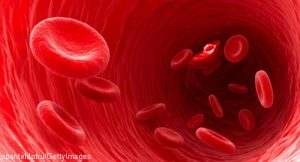 PHILADELPHIA—Ever since the seminal work of C. Lockard Conley, MD, in 1952 of the discovery of the lupus anticoagulant, antiphospholipid syndrome (APS) has been of great interest to rheumatologists, hematologists and many others. At ACR Convergence 2022, the session titled Draft ACR/EULAR Antiphospholipid Syndrome Classification Criteria sought to summarize the rigorous process that went into the creation of these criteria and describe the novel aspects of this project.
PHILADELPHIA—Ever since the seminal work of C. Lockard Conley, MD, in 1952 of the discovery of the lupus anticoagulant, antiphospholipid syndrome (APS) has been of great interest to rheumatologists, hematologists and many others. At ACR Convergence 2022, the session titled Draft ACR/EULAR Antiphospholipid Syndrome Classification Criteria sought to summarize the rigorous process that went into the creation of these criteria and describe the novel aspects of this project.
The first speaker in the session was Medha Barbhaiya, MD, MPH, assistant attending physician, Hospital for Special Surgery, New York City, and assistant professor of medicine and population health sciences, Weill Cornell Medicine, New York City. Dr. Barbhaiya began her presentation by noting the distinction between classification and diagnostic criteria, explaining that the goal of classification criteria is to create a well-defined study sample representative of the majority of patients with a particular condition, and the goal of diagnostic criteria is to identify all patients with a condition, including those with unusual presentations.
Need for New Criteria
She explained that the currently used classification criteria for APS are the Revised Sapporo APS criteria, which rely on a combination of clinical and laboratory criteria to identify the disease. Some of the limitations of these criteria include: 1) a lack of risk stratification by APS lab profile, 2) unclear definition of antiphospholipid positivity, 3) no representation of heterogeneous presentations, such as heart valve disease or thrombocytopenia, 4) lack of stratification of thrombotic events by provoking risk factors, and 5) an outdated definition of pregnancy morbidity.
Given these limitations, the investigators set to work on new criteria with generation of a comprehensive list of items related to APS and subsequent removal from this list of items with low sensitivity or specificity, poor reliability or insufficient feasibility. The subsequent steps were to further reduce candidate criteria, agree on precise definitions, determine the relative weight of each criterion using a derivation cohort and identify a threshold for a high likelihood of APS.
Innovations
The second presentation in the session, by Stephane Zuily, MD, PhD, full professor of medicine, Lorraine University, Nancy, France, was focused on the novel aspects of these new criteria. Dr. Zuily discussed how a patient who has suffered venous thromboembolism (VTE) without risk factors for VTE has a greater chance of having APS than a patient with the same type of VTE but one or multiple pre-existing VTE risk factors (for instance, an active malignancy).


